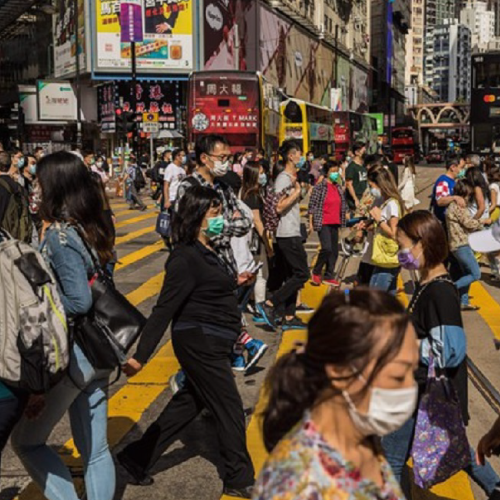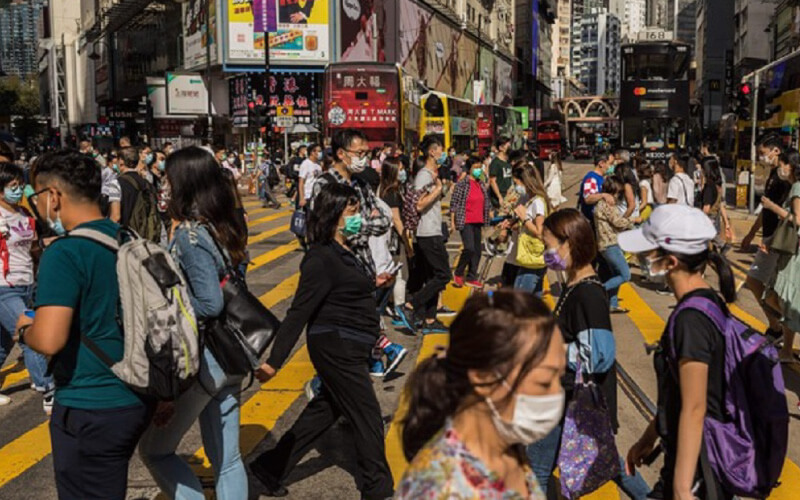More Americans have died from Covid-19 than during the entire Vietnam war, a grim milestone which coincided with Vietnam’s Liberation Day last week.
For Vietnam, it is quite a different story. At the conclusion of the Resistance War Against America, as it is known in Vietnam, the country had lost, by some estimates, up to 3 million lives. Yet, 45 years later, Vietnam has managed to prevent even a single death from the coronavirus.
Within days of the outbreak being confirmed in China, Vietnam’s leadership put the country on high alert and began a public awareness campaign, including educational videos that went viral.
The seriousness of the virus was never questioned. No uninformed debates were allowed on social media. The leader of the country did not pontificate about untested, potentially dangerous treatments. For a lower-middle income country of nearly 100 million people, it has been a remarkable achievement.
But we have also learned that, sadly, most of America will learn nothing from Vietnam’s success, nor the successes of other countries and territories including Hong Kong. American exceptionalism is not conducive to learning from others. It fosters excuse-making and blaming instead of taking ownership of outcomes.
The final authority in the land, the president himself, has said unequivocally that he takes no responsibility.
A widely shared Atlantic feature argues that America is a failed state, citing the well-publicised lack of preparedness and mismanaged response. But that, too, is just more domestic navel-gazing, as there is no reference to lessons to be drawn from elsewhere. America’s biggest failing is its unwillingness to look outside and learn from others.
Hong Kong should take note, and work to avoid falling into a similar trap of overconfidence now that it has contained the virus. More broadly, it must combat a tendency towards parochialism as the world changes.
The concerted attack on China by the United States and its Western allies betrays an inability to learn from, and acknowledge, the achievements of others, especially when they have a different political philosophy.
I witnessed an example of this closed mindset a few years ago when our institute facilitated an experiential leadership programme for an iconic American multinational, including a field project in Ho Chi Minh City and neighbouring rural provinces.
For the American executives, it was part of their “global perspectives module” and exposure to a rising Asia. Unfortunately, many in the cohort held fast to legacy narratives about communism.
They struggled to appreciate the merits of a differently structured political economy, or how economic reforms could be so successful without a wholesale embrace of liberal capitalism or multiparty democracy.
Our local Vietnamese hosts, on the other hand, had moved on, and were open and eager to learn from enterprising Americans, their socialist republic ideology notwithstanding. Their attitudes reinforced a 2017 survey, which showed that 91 per cent of respondents in Vietnam considered globalisation a force for good in the world, contrasting with only 40 per cent of those surveyed in the US.
Such lessons in pragmatism would be useful for American leaders confronted with an unprecedented unemployment crisis and a vast underclass without access to health care. US media too, could learn to play a more constructive role in society.
Vietnam’s strong social contract has served it well in managing the pandemic, just as in conventional warfare and socioeconomic development – pervasive appreciation of collective welfare, solidarity through struggle and social compliance for the greater good.
Social cohesion is worthy of study in America, as much of its population remains mired in political divisiveness, self-interested striving and unyielding fixation on personal freedoms, in particular the right to buy guns and enjoy spring break at the beach.
Although showing exceptional solidarity against the coronavirus, Hong Kong actually has more in common with the US than Vietnam – remarkable levels of absolute wealth, but persistent inequality that undermines the social contract, and which triggered the unrest.
Political polarisation has become accepted, in spite of being a barrier to social reform. Like in America, there is a growing tendency to grasp onto past glory days, obscuring fundamental changes in the transformation of China and the region, and thus the need to reinvent ourselves.
Fifty years ago, while Americans were learning the perils of fighting to contain the spread of communism (not the coronavirus), Hong Kong was learning how to become a commercial and financial hub at the dawn of an era of hyper-economic globalisation.
For decades a beneficiary of a seemingly endless expansion of global connectivity, supply chain integration and free flow of capital, people and goods, Hong Kong today faces an uncertain future.
No one can say with confidence what the post-Covid-19 era will look like. Trading patterns will shift. Monetary policy is in uncharted waters. Tourism as we knew it might not return, and remote working may mean fewer business travellers.
More than ever, pragmatism, flexibility and a capacity for reinvention are required. Is Hong Kong up to the challenge? If it can marshal the same unity and community purpose it did to contain the virus, then the answer is yes.
In addition, policymakers, business leaders and young professionals will need to look outside, learn from others and transcend persistent biases. There is a need to learn more about and from our neighbours in the region, which, save for Taiwan, South Korea and Japan, are too often dismissed as undeveloped or even undesirable.
For many in Hong Kong, developed Western nations still represent the aspirational models for society, though attitudes are changing based on recent failures and fractures.
Hong Kong has managed relatively well through this crisis. Yet the successes and failures of other countries should be a wake-up call for how we seek to organise society and prepare for a very different future, after the double whammy of protests and the pandemic.


























